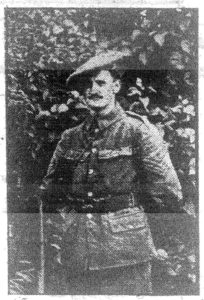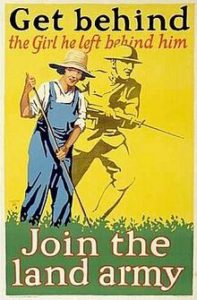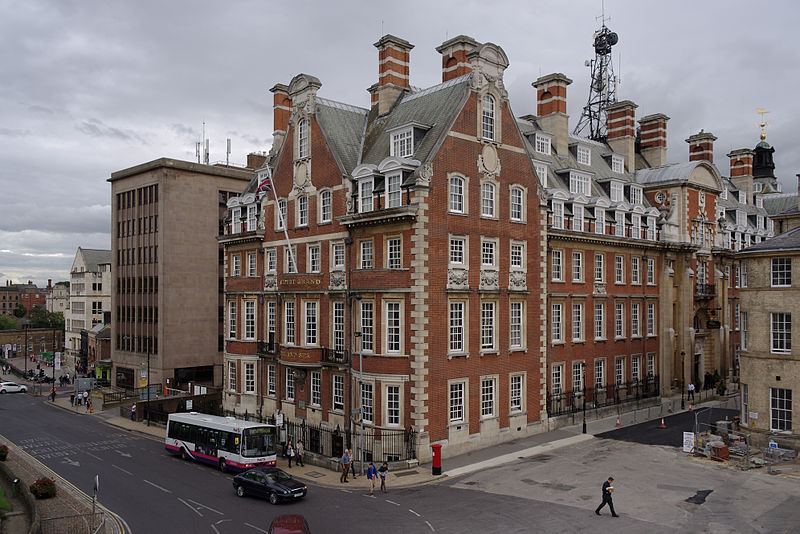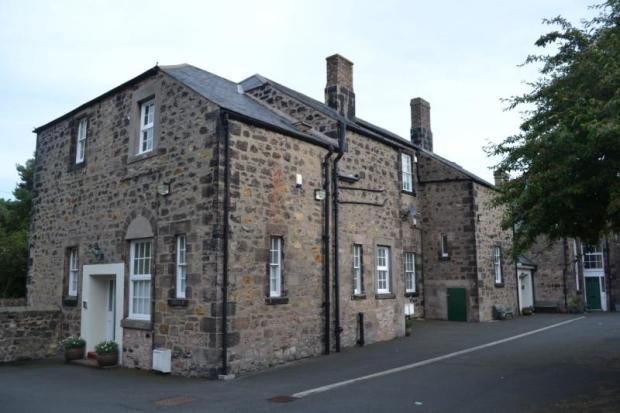BERWICK ADVERTISER, 2 NOVEMBER 1917
BELFORD LAD MAKES SUPREME SACRIFICE
We are deeply grieved to have to report that Sergt. Ernest Falla, third son of Mr and Mrs Thomas Falla, North Bank, Belford, has fallen at the post of duty in France. Prior to enlisting this young fellow was employed as footman with Mr Graham, Cartin, Carluke, Scotland, and had a most comfortable place, but his sense of duty to his King and Country was Treasurer, Mr J. Brand, Bank of Liverpool, call for help was given, so on September 3rd, 1914, he enlisted into the H.L.I., and soon after was transferred to the Machine Gun Corps and later to South African Infantry Brigade. On May the 10th, 1915, he sailed for France, and with the exception of one leave in January last has been doing his best to beat the Huns since that time. He won his stripes on the battlefield, and that is sufficient proof of the excellent way his duties have been performed. Ernest was a smart pleasant lad, and his loss is greatly mourned, and widespread sympathy is expressed for the bereaved relatives.
RECRUITING CHANGES
As has already been announced by the Minister of National Service, Great Britain will, for the purpose of recruiting, be divided into 10 regions, at the head of each there will be a civilian Director of Recruiting.
The Director for Scotland is Mr C.D. Murray, K.C., and his region will include the whole of Scotland, except the town of Berwick. Mr Murray is a well-known advocate at the Scottish Bar.
The Director for the counties of Northumberland, Cumberland, Durham, and Westmorland, with the Cleveland District of Yorkshire, and Berwick, is Mr D. H. L. Young, a member of the firm of Messrs James Templeton and Co., of Glasgow. He has had experience of administration of the Military Service Acts as a member of an appeal tribunal.
THE NEW CATEGORIES
According to an Army Council Instruction just issued by the War Office, it has been decided to abolish the distinction between categories B and C in the classification of men by categories. As to men fit for service overseas in categories lower than A, the Instruction points out that this will be provided for by special medical examination when the men are required to proceed abroad. The new classification comes into force on November 1.
Category A is for men fit for general service in any theatre of war, from the point of training, as well as good physical and mental condition, and who are able to stand active service work.
Category B will consist of those who are not fit for general service, but will do for home service. There are three sections in B (i.) men fit for field units (at home only) or garrison duty (ii.) in labour units, (iii.) sedentary work.
These are followed in the Instruction by category D for men who may be deemed temporarily unfit for service in categories A or B, but who are likely to become fit within six months.
Category E provides for those who are unfit for services in categories A or B, and who are not likely to become fit in six months.
Category B (iii.), it should be added, also comprises those who, if skilled tradesmen, are able to work at their trades.
Category D is temporary, so far as reserve units are concerned, and a man in a higher category will automatically come under D3, if under medical or dental treatment, rejoining his original category until transferred either upwards or downwards, as the case may be, by the medical officer or travelling medical board.
AGRICULTURE
WOMEN AND SCHOOL CHILDREN HELP
This year real service has been rendered in work of this class by school children, also women. Many of the rural school boards have risen well to the occasion this year in the way of granting leave. Farmers generally are grateful, not only for the assistance which they have got in this way, but also for the help which women and soldiers have rendered. Many increased their potato area this year to meet as far as possible national necessity, and it is not easy seeing how the crop could have been handled but for the extra help that has been obtained in this way.
LOCAL NEWS
The marriage which has been arranged between Lieut. Cecil Olcher Fedden, 22nd Punjabis attached to the Royal Flying Corps, eldest son of Mr F. Player Fedden, Glenthorpe, Barnet, and Miss Shena Lennox Fraser, eldest daughter of Colonel C. l. Fraser, V.D., Berwick, will take place quietly on Monday, 3rd December, in Berwick Parish Church. Lieut. Fedden has seen a good deal of active service, and fought on the Indian frontier in 1911 in the Abor expedition.
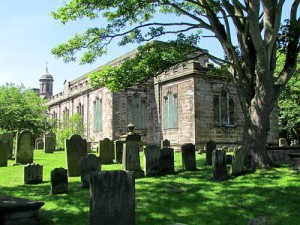
He was fourteen months in Mesopotamia at the beginning of the present war, being badly wounded at the battle of Ctesiphon. He made his escape out of Kut the day before it was besieged – 3rd December, 1915. Miss Fraser is well known for her good work in Berwick and district. She acted as Secretary for the Berwickshire Soldiers’ and Sailors’ Family Association and worked enthusiastically for the cause, while she also took an active interest in her work as a member of the local War Pensions Committee.
D.S.M. FOR HOLY ISLAND MAN
A.B. Robert Lilburn
We are pleased to announce that the Distinguished Service Medal has been awarded to Able Seaman Robert Lilburn, R.N.R., for bravery in saving the lives of the crew of a mined ship in December last. Seaman Lilburn, who is a Holy Island man, and a son of the late Mr James Lilburn, who was drowned many years ago at the Island under distressing circumstances when piloting a steamboat into the harbour, has seen two years’ service with the mine sweeping sections of the Fleet, and has been regularly at sea since then. In civil life he followed the calling of a fisherman. His many friends will heartily congratulate him upon the honour just awarded.
HOLY ISLAND
Gallant Lifeboatmen – A pleasing ceremony took place at Holy Island. Mr A. Logan, of Berwick, acting on behalf of the Swedish Government, presented handsome cups to Coxwain George Cromarty and Second Coxwain Thomas Kyle, and a sum of £2 to each of the crew of the Holy Island No.2 Lifeboat, for the rescue of the crew of the Swedish barque Jolani, in Nov. 1916.
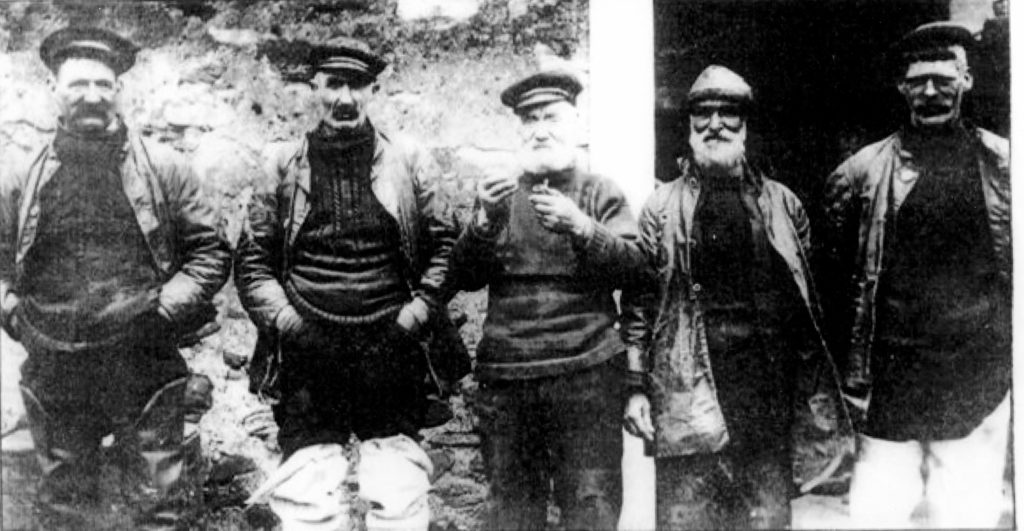
The rescue took place under exceptional difficulties, the wind blowing a gale from the east. The two coxswains expressed their thanks to Mr Logan, and through him to the Swedish Government, Mr Kyle declaring that all the members of the crew had done equally well. On the suggestion of Mr Logan a collection was taken for the Royal Lifeboat Institution, to which all responded heartily.


